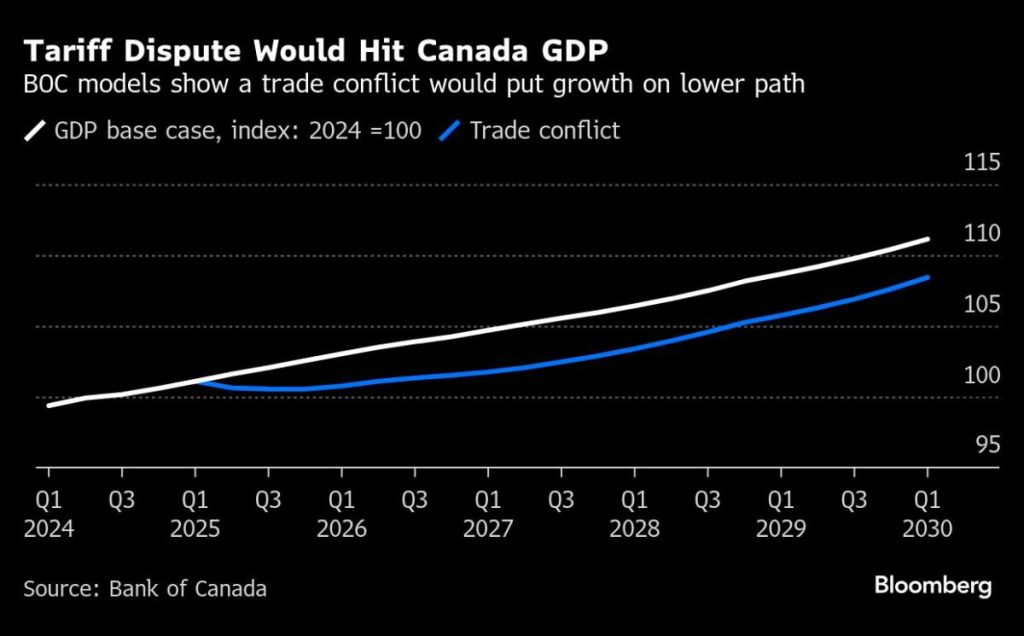(Bloomberg) — The Bank of Canada is likely to cut interest rates for a seventh straight meeting on Wednesday as the country braces for a trade war that will plunge the economy into recession unless there’s a swift resolution.
Most Read from Bloomberg
Economists and markets expect policymakers led by Governor Tiff Macklem to cut the policy interest rate to 2.75%, the lowest level since September 2022.
The uncertainty posed by US President Donald Trump’s tariff barrage will likely compel the central bank to keep cutting in order to stem economic damage. Without the trade war, a stronger-than-expected rebound in the Canadian economy and signs of stickier core inflation might have justified a pause in the easing cycle.
“Based on recent data alone I wouldn’t have thought they’d be cutting at this meeting,” Veronica Clark, an economist with Citigroup, said by email. “But that data feels pretty stale now and won’t reflect current conditions of tariffs.”
Trump imposed 25% levies on most Canadian and Mexican goods last week, but then promised a one-month delay on those that comply with the North American trade agreement. He then threatened major new tariffs against Canadian lumber and dairy. The US is also putting 25% import taxes on steel and aluminum, hitting two other Canadian export industries; the president briefly threatened to raise those tariffs to 50%.
Canada has retaliated, putting levies on C$30 billion ($20.8 billion) in US goods and pledging to expand tariffs to C$155 billion worth of products on April 2, unless the White House backs down or the sides can negotiate a way out.
The central bank’s task amid the rapidly changing trade dynamic is to keep communicating that it can adjust interest rates to lessen the economic hit.
Still, Macklem is likely to reiterate there’s a limit to how much monetary policy can do to fix the problem. The tariff battle will come with an inflation shock, constraining the bank’s response compared with the Covid-19 pandemic, when the policy rate fell to 0.25%.
Economists have estimated that Trump’s tariffs on Canada, combined with retaliation, will shave 2 to 4 percentage points off the country’s gross domestic product growth.
The central bank expects similar economic pain. In a speech last month, Macklem said a prolonged trade dispute would wipe out growth and hit Canada’s output by nearly 3% over two years. Still, in its projections, the bank said the factors pushing prices higher would more than outweigh downward pressures on prices – causing inflation to rise.
Story Continues


